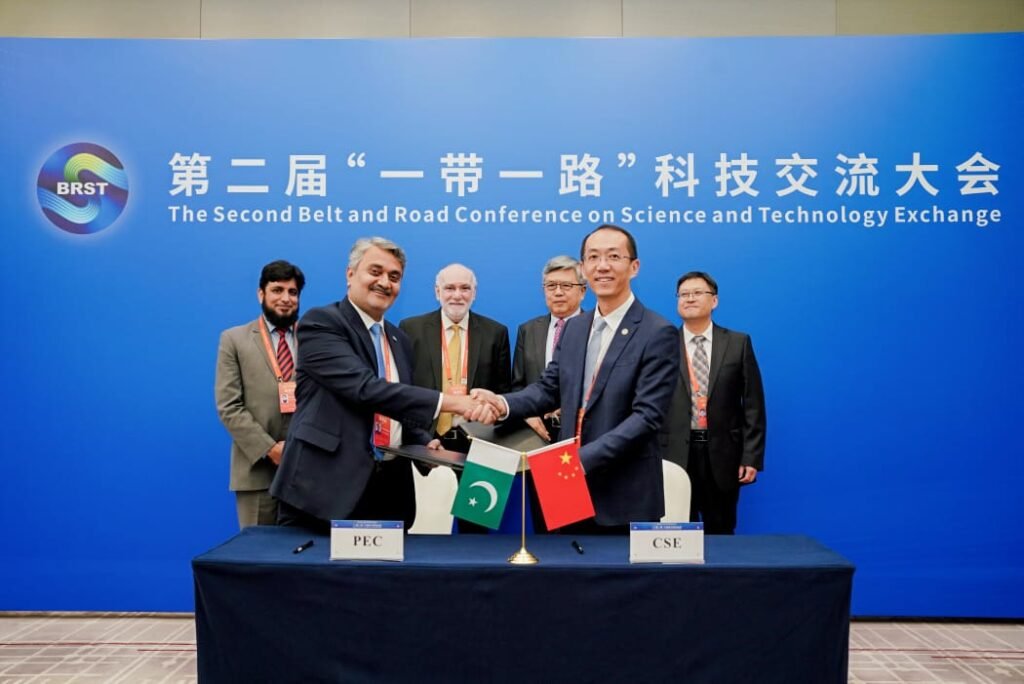
Chengdu : – Pakistan Engineering Council (PEC) and the Chinese Society of Engineers (CSE) have signed a landmark Mutual Recognition Agreement (MRA), paving the way for reciprocal recognition of engineering qualifications between the two countries. The agreement, signed in Chengdu, China, marks a major step toward expanding career opportunities for Pakistani engineers and deepening engineering collaboration under the Belt and Road Initiative (BRI).
Under the agreement, four-year bachelor’s degrees from institutions accredited by PEC and the Chinese Engineering Education Accreditation Association (CEEAA), along with valid professional registrations, will be recognized mutually without any additional examination requirements. This framework allows Pakistani engineers to obtain provisional licensure in China, enabling them to contribute to critical projects across sectors like infrastructure, energy, ICT, and smart cities (and vice versa). Moreover, the agreement extends opportunities for Pakistani engineers across other BRI member countries, where Chinese-led projects are underway and demand for qualified engineering professionals is high.
The signing ceremony was led by PEC Chairman Engr Waseem Nazir and CSE President Mr. Wan Gang, with key representatives Engr Dr Nasir Mahmood Khan (Secretary/Registrar, PEC) and Mr. Zhang Bin (Deputy Secretary-General, CSE) formalizing the agreement. Former World Federation of Engineering Organizations President Mr. Gong Ke also attended the event, highlighting its global significance. A joint implementation framework will now oversee credential verification, continuing professional development (CPD) programs, and bilateral exchange opportunities.
“This agreement is a clear vote of confidence in Pakistan’s engineers,” said the Chairman PEC Engr Waseem Nazir. “It will open new doors for our young professionals, enhance engineering service exports, and amplify Pakistan’s image internationally, especially across BRI countries. It also validates the high standards of engineering education and professionalism that Pakistan adheres to”.he added.
Beyond professional mobility, the agreement is expected to create strong economic ripple effects. By facilitating cross-border engineering services and human resource exports, the deal is likely to contribute to foreign exchange earnings and present Pakistani engineers as ambassadors of technical excellence and cultural goodwill. Most importantly, it sends a powerful global message: Pakistan produces engineers capable of meeting the highest international benchmarks.







